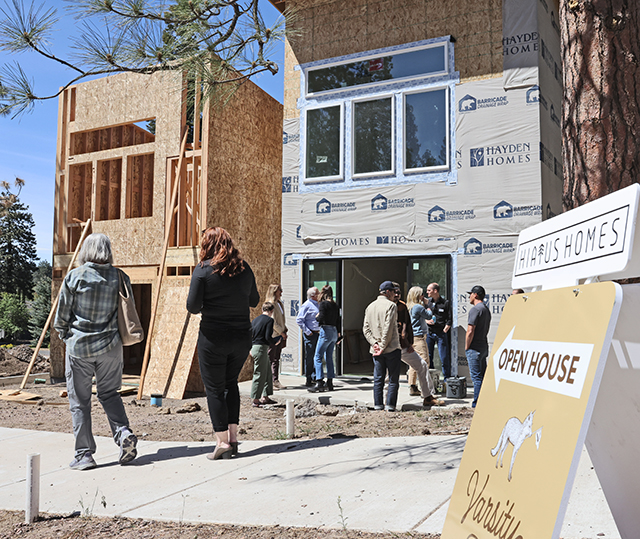Guest Column: Governor Kotek, don’t sell off Oregon’s wetlands in the middle of climate catastrophe
Published 9:00 pm Friday, September 15, 2023

- Stewart-Fusek
Oregon has an affordable housing crisis but handing over our wetlands to developers won’t solve it.
Yet that’s exactly what Gov. Tina Kotek is considering.
Wetlands are lands that are partially or completely covered with water, year-round or seasonally. They’re biodiversity hotspots that support Oregon’s beloved wildlife and provide abundant benefits to people. They’re also one of the sharpest tools we have in our climate resiliency toolbox.
Wetlands trap and store tremendous amounts of carbon from the atmosphere, provide cooling during extreme heat, improve water quality, and store flood water during deadly storms.
But in a decision not rooted in science or reality, the U.S. Supreme Court recently eliminated federal protections for about half of the nation’s wetlands in Sackett v. EPA. Fortunately, Oregonians could sleep a bit easier knowing that our wetlands remained protected under Oregon state law.
Now, bowing to developers and siding with the conservative Supreme Court, Kotek proposes to change that.
A new draft proposal from Kotek’s Housing Advisory Panel calls for eliminating state protections — which, after Sackett, go beyond federal law — for “marginal or degraded” wetlands. This will allow developers to pave over wetlands to build new housing. But doing so won’t fix Oregon’s affordable housing shortage. In fact, the proposal says nothing about affordable housing.
Instead, weakening wetland protections will allow developers to profit from placing people in flood-prone areas while wiping out some of Oregon’s last remaining wetlands and all the benefits they provide.
Wetland loss is already a major problem in Oregon. The state’s wetlands once covered 2.3 million acres, but now span just 1.4 million. Once known as the “Everglades of the West,” the Klamath Basin has lost roughly 95% of its wetlands, and the Willamette Valley has lost about 60%. While losses used to be attributed primarily to agriculture, urban and rural development is now the primary culprit.
The societal cost of wetland loss can’t be overstated, especially in light of shifting weather patterns caused by climate change. When wetlands become inundated during storms they store excess water, preventing the water from inundating downstream communities. One study found that, on average, coastal wetlands mitigate property damage by 16% annually. Building housing in wetlands eliminates this crucial flood resiliency tool while also placing people directly into the next flood’s path.
Wetlands also help forests recover following wildfire. Oregonians are no strangers to the destruction caused by fast-moving fires like the one that devastated Talent in 2020. Fires are becoming larger and more frequent because of climate change-fueled drought, high temperatures, fire suppression and exploitative forestry practices. Wetlands create pockets of living trees in burned areas and trap ash and sediment released by fires, lessening the impacts of fire on the landscape.
And wetlands provide a crucial source of cooling during extreme heat. July 2023 was the hottest month recorded in human history. If we keep adding greenhouse gases to the atmosphere by burning fossil fuels, scientists are certain that the hottest months are yet to come.
The Northwest’s 2021 heat wave, with temperatures reaching 120 degrees, killed more than a thousand people, including more than 100 in Oregon. As we experience more frequent heat waves because of human-caused climate change, the cooling effect provided by wetlands can mean the difference between life and death for people and wildlife.
Climate change is causing more extreme weather and the last thing states should do is weaken wetland protections. Instead, our governor should be protecting what’s left of Oregon’s wetlands and restoring those we’ve lost.
Selling them to developers under the guise of addressing the housing crisis isn’t just disingenuous, it’s flat-out dangerous.
Do you have a point you’d like to make or an issue you feel strongly about? Submit a letter to the editor or a guest column.






